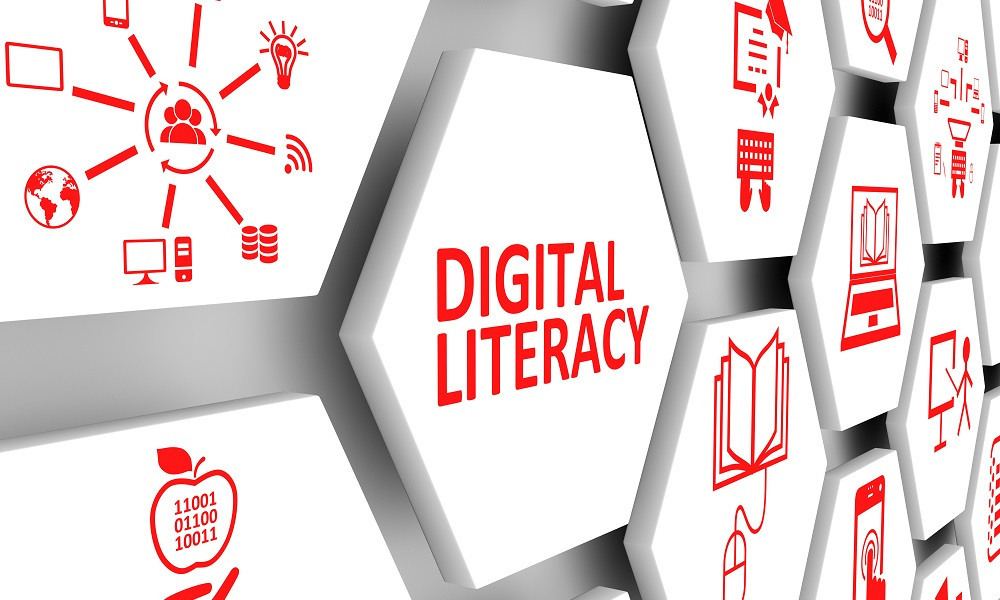A report by Oxford Economics in 2016 says the global digital economy is valued at $11.5 trillion, or approximately 16% of the Global Economy, which is projected to account for a quarter of the global economy in the next 10 years.
Similarly, the World Economic Forum predicts that over 60 per cent of global GDP will be digitized by 2022 and that over the next decade digital platforms will be used to create close to 70 per cent of the new value.
- Safeguard Nigeria’s democracy, Gbajabiamila urges journalists
- Uncertainty Trails FG’s N348trn National Development Plan
Digital literacy is a combined ability to find, utilize, evaluate, share and create content using Information Technology (IT) and the internet and the United Nations Educational, Scientific and Cultural Organization (UNESCO) defined it as the ability to access, use and disseminate information in the digital age.
Thus, digital literacy is about understanding information when it is presented in different formats, and figuring out how to use it in secure and productive ways. The adoption of digital space is becoming perforated as it is being used for filling application forms, to shopping online for everyday groceries and clothes among others.
In developed countries, research has shown that both large enterprises and small businesses have successfully adopted digital literacy or skills to gain competitive advantage, transform business models and improve relationships with customers and suppliers. These skills are an essential success factor for many successful small business owners.
It has clearly become fundamental for the Nigerian government to explore the options of taking more small business owners into the digital space to help their businesses thrive.
However, the United Nations Educational Scientific and Cultural Organization Institute for Information Technologies in Education (UNESCO IITE) stated that digital literacy has beneficial effects on learning skills and competencies because it broadens the scope of potential knowledge.
Nigeria currently does not have a large slice of the global digital economy but an effort is being made to position the nation to play a leading role in contributing to its economy. This is why during a one-day virtual workshop earlier this year, the Minister of Communications and Digital Economy, Mallam Isa Pantami, noted that for Nigeria to achieve its ambitious target of 95 percent digital literacy level by 2030, “we will need to build the literacy of citizens, in order for them to understand and consume digital services.”
The awareness of what digital literacy is and the reality of its influence on our daily lives will significantly improve its promotion in Nigeria. We can dominate our environment in many ways with digital literacy. We can develop into creators of ideas that can arouse wants, lead to the creation of tools that can lessen stress, and effect a shift from being consumers to producers.
It is pertinent to state that a business owner in Nigeria should at least have basic knowledge of how to navigate the internet for seamless business transactions. It could be for communication purposes between a business owner and the customers, it could be for payment purposes through bank apps, USSD codes or POS.
Despite the efforts of the government in creating small business development agencies in Nigeria, small businesses continue to face challenges that threaten their survival. But several interventions have been launched in Africa, particularly in Nigeria, to assist entrepreneurs to grow sustainable businesses and become more digitally literate.
Yet, small businesses continue to face issues: like lack of funds, low entrepreneurial and managerial capabilities, poor and unreliable infrastructure, a harsh business environment, poor service delivery and lack of access to modern technology.
How can they achieve that?
The federal government should reinvent the future of small business owners by giving them access to more funds, and extending its current education reforms to make it more functional and need-oriented driven with an emphasis on social networking services such as Facebook, WhatsApp, Instagram, Twitter and YouTube among others and how they can help entrepreneurial returns among small business owners.
There should be a reliable structure and a flexible business environment for business owners and more access to technological knowledge.
Small business owners can also take personal beginner courses to help broaden their knowledge of the digital space and how they can apply the gained knowledge to generate more profit for their businesses.



